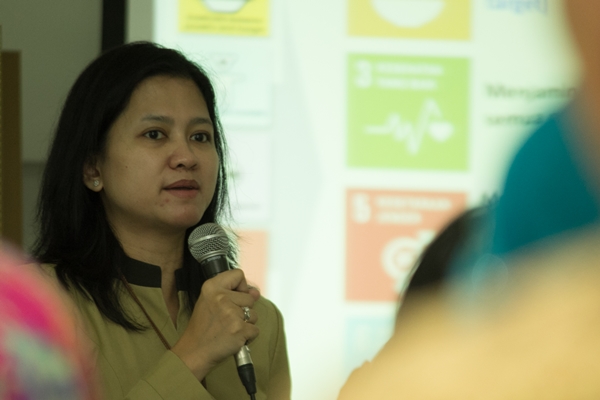
Special Staff to the Minister of Health for Improving Partnerships and Sustainable Development Goals (SDGs) Diah Saminarsih said that Indonesia has not been able to realize almost all of the Millennium Development Goals targets. (MDGs). Of the 63 indicators for achieving MDGs in the health sector, Indonesia only succeeded in achieving 13 indicators, 36 other indicators are still running, while the remaining 14 indicators are not running as planned.
Principal Secretary of the Post-2015 Health Sector Development Secretariat, Dedi Kuswenda, said there were several factors that caused this to happen. The first is the delay in issuing regulations that can be used to encourage the implementation of the MDGs, especially in the health sector. In the case of the MDGs, Dedi said, this regulatory framework was only published ten years after the MDGs appeared in 2000. “Yesterday our readiness to face the MDGs turned out to be very lacking. “We only had this regulation in 2010,” he added.
Apart from that, added Dedi, at the regional level, not all MDGs indicators are integrated in regional government program planning and budgeting. Several MDGs indicators are also not available in the database at the district/city level. Dedi said that many local governments still consider data to be unimportant, especially for the planning, monitoring and evaluation processes. The low level of involvement of non-governmental elements such as the private sector, civil society and academics also influences the failure to achieve several SDGs indicators.
So that the same mistakes do not occur again in the implementation of the SDGs, especially in the health sector, the National Development Planning Agency (BAPPENAS) advises the Ministry of Health as the person responsible for the sector to map the availability of indicators at the national level and build partnerships with civil society, academics, the private sector, media, and international partners.
Responding to suggestions given by BAPPENAS, the Ministry of Health took several initial steps to accelerate the achievement of SDGs in the health sector. Diah explained again that one of the main steps taken by the Ministry of Health was to issue a Decree from the Minister of Health regarding the Post-2015 Health Sector Development Secretariat, which aims to oversee the transition process from MDGs to SDGs in the health sector.
Diah said that the secretariat would start its work by asking for various inputs from related parties such as regional governments, officers in health service units, academics and civil society regarding indicators of SDGs target achievement. This aims to ensure that the SDGs can be implemented inclusively or involve all related elements. “Because in implementing the SDGs, the level of inclusiveness is wider. “It’s no longer limited to just the government,” he explained.
In addition, to encourage the involvement of all parties in achieving the SDGs, supported by the Representation Program and USAID, the Health Cluster Coalition consisting of various Civil Society Organizations, both national and regional, in collaboration with the Ministry of Health held a national discussion on health entitled Government and CSOs Partnership in Achieving SDGs in the Health Sector.
In her opening speech to the discussion, Diah explained that there are 38 SDGs targets in the health sector that need to be realized. The focus of all these targets, said Diah, includes community nutrition, the national health system, access to health and reproduction, family planning (KB), as well as sanitation and clean water. So that target achievement can be measured, the government will develop various indicators. To realize the inclusive principle in preparing SDGs target indicators, the government also hopes for input and views from other related parties such as civil society and academics regarding the indicators that have been created.
“In efforts to prepare indicators and implement SDGs targets that are more inclusive, we need to map the roles of various stakeholders. “For example, in this case, civil society institutions (CSOs) can take an advocacy role to improve strategic initiatives and studies, make situation reports on SDGs implementation in the field, and empower the community,” concluded Diah.
Ending her speech, Diah hoped that the discussion regarding SDGs in the health sector would not be the last meeting, but rather would be the opening meeting of discussions on preparing SDGs indicators. Because, explained Diah, currently the UN is collecting various indicators for achieving the SDGs targets and will publish them in March 2016. “We hope that from now until March, we will jointly hold discussions regarding what actions can be proposed to achieve health sector development targets,” he said.
A national discussion on health entitled Government and CSOs Partnership in Achieving SDGs in the Health Sector was held on December 14, 2015, at the Ministry of Health Office, Jakarta. Ministry of Health officials attended the activity representing the central government. Heads of health services in several regions also took part in discussion activities as representatives of regional governments, as did civil society, academics and the media who are also government partners in achieving various SDGs targets.




